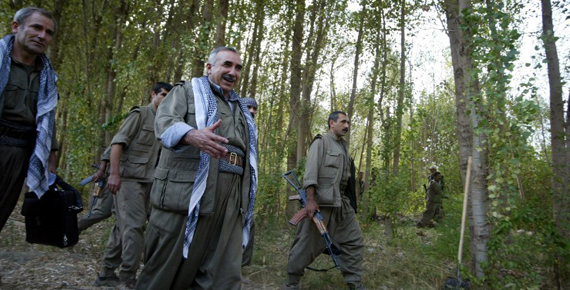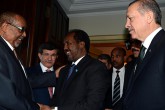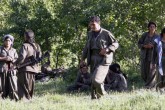Turkey has been talking about the outlawed Kurdistan Workers’ Party’s (PKK) disarmament for months now. There is a Kurdish question in Turkey. And the most important issue the Kurdish question faces is the PKK. The PKK is an organization that gets bigger by feeding on the Kurdish question. Nevertheless, this observation does not take us to the conclusion that it was the Kurdish question that sustained the PKK. To the contrary, the PKK took arms in pursuit of its anachronistic ideological utopia. In the end it has become the factor that has not only prevented the nation from facing the Kurdish question at a deeper level, but also set Turkey’s democratic consolidation back at least 20 years. A Turkey without PKK violence would not have sustained a Kemalist tutelage regime that stood in front of Kurds gaining their most natural human rights for two decades.
As the 2013 resolution process began, Öcalan’s move verified the veracity of the above observation. Öcalan’s formulation was as simple: if Turkey consolidates its democracy the Kurdish question will have a resolution. The more Turkey democratizes, the better it will get for everyone including the Kurds. Öcalan has recognized the fact that Turkey’s democratic consolidation would be delayed as long as the PKK continued to hold arms. He acknowledged it was this delay that prevented Kurds gaining their rights under democracy. He also noticed that the PKK did not have a future as an armed organization in the new equilibrium of the Middle East. Having rejected the secular leftist jargon that has dominated the PKK’s discourse for years, he announced the “end of the armed struggle.”
Now we face a three-phased road map. 1) The PKK retreats from Turkey. 2) Some legislative changes will be made. 3) The PKK will disarm completely. And the aim is to complete all this by the end of 2013. The number of seats AK Party and the Peace and Democracy Party (BDP) hold in the parliament is not enough for the second phase to actualize easily. As such, a referendum might be needed to secure the support for the necessary legislative changes. However, there is no guarantee a plebiscite would grant such support. Both the BDP and PKK will have to face the limitations and difficulties of a democratic struggle. The PKK will have two choices. In the face of the difficulties of a democratic struggle it might take to arms again as the most familiar strategy, or will say farewell to arms forever in order to become a meaningful political actor.
The PKK’s reactions to the peace process after Öcalan’s March 21st, 2013, announcement seem positive. The PKK might have difficulty in sustaining the rational approach it has displayed so far. There may be ups and downs. Nevertheless, an announcement of intention to retreat from Turkey in front of cameras indicates a point of no return from the PKK’s perspective. And from Turkey’s perspective, as long as the PKK does not take up arms again, taking the necessary democratic steps will no longer be a choice but an obligation. This process we are facing should be taken as an opportunity to get rid of all – de facto and de jure – anti democratic policies that have trapped Turkey into remaining a “modern tribal” state. This process of disarmament will not only disarm the PKK. It will also disarm old Turkey and its actors politically. Precisely for this reason, AK Party should overlook any resistance to a peaceful resolution and take this opportunity to fortify their democratization angle.
[Hurriyet Daily News, April 26, 2013]
In this article
- Domestic Policy
- Opinion
- 2013
- Global Actors | Local Actors
- Human Rights
- Kemalism
- Kurdish Community
- Kurdish Question
- Kurdistan Workers' Party Terrorist Organization (PKK)
- Middle East
- PKK - YPG - SDF - PYD - YPJ - SDG - HBDH - HPG - KCK - PJAK - TAK - YBŞ
- Terror
- Türkiye
- Türkiye's Justice and Development Party | AK Party (AK Parti)
- United States (US)



